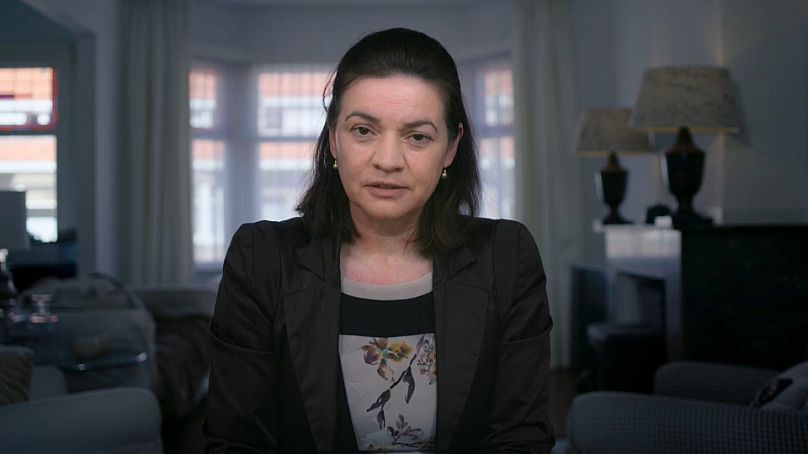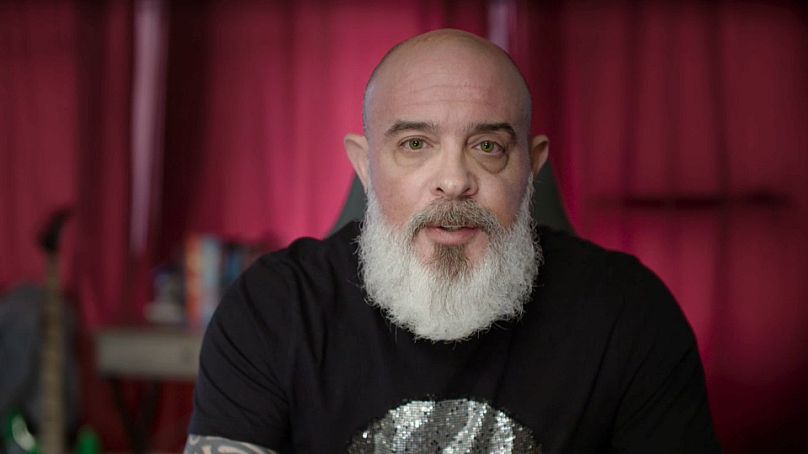In this new series of hacker : HUNTER, we speak to families and cybersecurity experts to find out how children and teenagers are finding themselves caught up in the shadowy world of cybercrime.
In a world that is increasingly internet-enabled and hyper-connected, the issue of cybersecurity has never been so important.
 ADVERTISEMENT
ADVERTISEMENT
 ADVERTISEMENT
ADVERTISEMENT
And in a period of heightened geo-political tensions, people and businesses are faced with the ever-growing threat of cyberattacks.
But what do we know about these cyber criminals who operate in the shadows of the world wide web?
In our second series of hacker : HUNTER, we shift our focus to the role of children and learn how criminals are targeting young gamers, who are carrying out sophisticated cyberattacks and even getting their hands on deadly weapons.
Kids in Cybercrime
Barbara Gemen's son became involved in cybercrime at a very young age.
"My son started hacking at the age of eight. And that's when he ordered a gun," she explained.
"I think he spent a month trying to figure out how to order the gun and to get it delivered to our home. [From] Poland to Bulgaria, and you can make sure it passes through customs without being checked. He opened it and he was really, really excited that he managed to get a gun delivered to our home. I was completely shocked. I immediately decided to do things differently at home."
"He started to spend a lot of time behind a computer and he started ordering things on the Internet without paying. First, like pizzas, but then also bigger things [...] It was quite difficult for me to understand what was going on."
"He started to wake up at night to sit behind a computer and he was really stressed. And that's when we find out he was working with a group of international hackers."
But after her attempts to inform the police were dismissed as "exaggeration" by officers, she decided to train herself in cybersecurity and is now a Cyber Special Volunteer with the Dutch Police.
"It's so easy these days because a lot of kids have laptops, mobile phones, and basically you can do a hack with a few clicks. It's a quite big issue to prevent young people from hacking. They often don't know what's legal or what's illegal," she said.
The link between online gaming and hacking
Mike Jones is a Security Researcher who mentors children that have been identified as potential cyber criminals.
He explained that organised criminals are increasingly targeting kids who play video games and coercing them to carry out cyberattacks.
"Organised crime, they are watching in the games. They're able to identify these kids who have that capability, that knowledge," he revealed.
"The first thing is to gain trust. Find things about them that they enjoy. So once you gain that information, you gain that trust [...] Those children that usually are into the technology and the gaming are usually not the in-crowd in school."
"Online gaming and hacking, they are linked in some really intrinsic ways," said Alexander Urbelis, Cybersecurity lawyer, at Crowell & Moring LLP.
"You want to try to figure out if you can generate some kind of advantage or identify some kind of vulnerability in the system that will increase the coins or the currency that you have. There's motivation between generating some kind of advantage in the game and being able to hack."
'Harmless fun': An inability to understand the consequences?
Dr Kelli Dunlap is a Clinical Psychologist and Game Designer. She says that these young hackers are susceptible to carrying out these dangerous and illegal attacks because their brains are not fully developed.
"Teenagers are not thinking about the harm they could cause [...] Children and teenagers are amazing. Their brains are just developing rapidly and their ability to learn new things and adapt is really amazing to watch," she said.
"However, there are parts of the brain that they literally lack, and those parts are related to things like anticipating consequences. This is just a neurological state that has not developed as part of their brain yet."
Christian Funk, an expert in Global Research and Analysis, argues, however, that young people are attracted to cybercrime to prove themselves to their peers.
"Hacking has kind of a mythical aura to it. It has a bit of a cool factor. That is, of course, also due to a lot of series and movies. How hackers are being portrayed," Christian said.
"That actually attracts a lot of young people that might want to prove their ego or boost their ego, might want to acquire maybe some bragging rights. I think that's just something that comes with it."




















